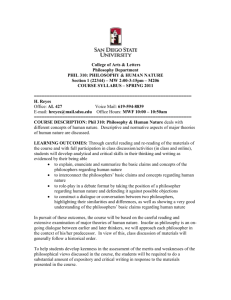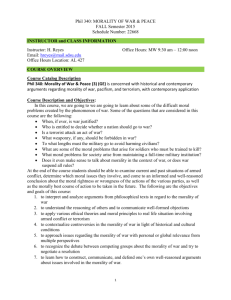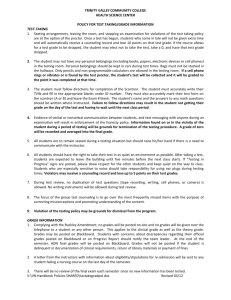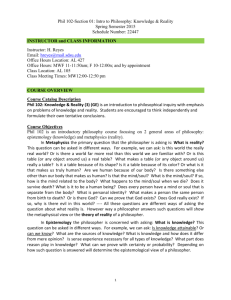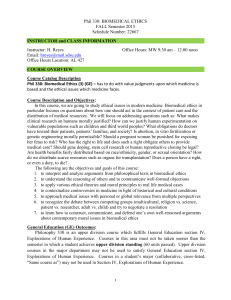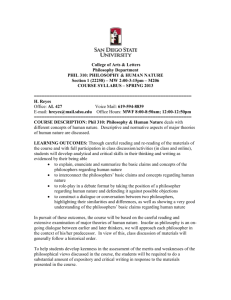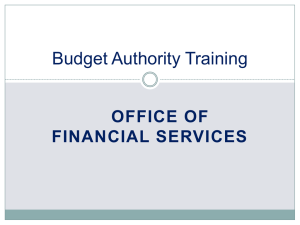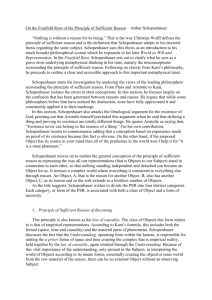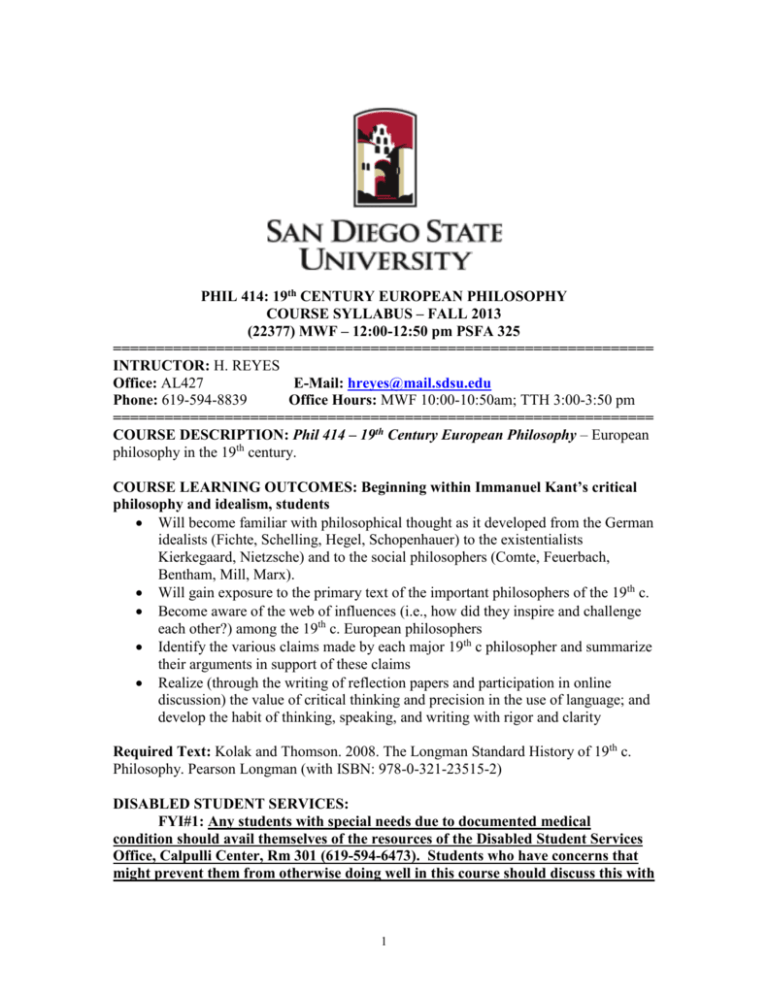
PHIL 414: 19th CENTURY EUROPEAN PHILOSOPHY
COURSE SYLLABUS – FALL 2013
(22377) MWF – 12:00-12:50 pm PSFA 325
===============================================================
INTRUCTOR: H. REYES
Office: AL427
E-Mail: hreyes@mail.sdsu.edu
Phone: 619-594-8839
Office Hours: MWF 10:00-10:50am; TTH 3:00-3:50 pm
===============================================================
COURSE DESCRIPTION: Phil 414 – 19th Century European Philosophy – European
philosophy in the 19th century.
COURSE LEARNING OUTCOMES: Beginning within Immanuel Kant’s critical
philosophy and idealism, students
Will become familiar with philosophical thought as it developed from the German
idealists (Fichte, Schelling, Hegel, Schopenhauer) to the existentialists
Kierkegaard, Nietzsche) and to the social philosophers (Comte, Feuerbach,
Bentham, Mill, Marx).
Will gain exposure to the primary text of the important philosophers of the 19th c.
Become aware of the web of influences (i.e., how did they inspire and challenge
each other?) among the 19th c. European philosophers
Identify the various claims made by each major 19th c philosopher and summarize
their arguments in support of these claims
Realize (through the writing of reflection papers and participation in online
discussion) the value of critical thinking and precision in the use of language; and
develop the habit of thinking, speaking, and writing with rigor and clarity
Required Text: Kolak and Thomson. 2008. The Longman Standard History of 19th c.
Philosophy. Pearson Longman (with ISBN: 978-0-321-23515-2)
DISABLED STUDENT SERVICES:
FYI#1: Any students with special needs due to documented medical
condition should avail themselves of the resources of the Disabled Student Services
Office, Calpulli Center, Rm 301 (619-594-6473). Students who have concerns that
might prevent them from otherwise doing well in this course should discuss this with
1
the instructor so that proper arrangement may be made to accommodate their
conditions.
FYI#2: Students must inform instructor within the first two weeks of class of
any planned absences on account of religious observances.
CLASSROOM ETIQUETTE:
Use of laptop computers or other devices in class is ALLOWED only for the
purpose of note-taking. Other computer/tablet activities can be distracting, so refrain
from any activity or behavior that may be disturbing to other students who are making the
effort to be attentive. Cell phones and other electronic devices should be turned off
and stored away. Please RESPECT YOURSELF and OTHER STUDENTS by not
chatting with one another during class. Also, keep in mind that the classroom is not
the proper for sleeping.
COURSE REQUIREMENTS:
1. Attendance and Participation (in-class and on-line):
Because of the nature of the course and the structure by which it is conducted,
it is imperative for the students to attend each class on time. It will be to your
benefit to avoid unnecessary absences as such absences drastically affect your
appreciation and understanding of the materials discussed as well as your
performance in the exams.
To be prepared for each class and actively participate in class activity. You
will have (or at least have tried to) read and thought about the assigned
reading before each class. Be sure to bring the assigned text or handout with
you to class. Active participation requires that you follow closely the ongoing class discussion, think of the questions asked and answers offered even
if you are not the one asked. Keep in mind that you are a major participant to
the philosophical conversation going on in class.
On-line class participation will be through the Blackboard Discussion
Board. For every major reading assigned, you will be asked to answer
some questions based on the reading, or make comments about some
passages taken from the reading, or participate in a group discussion or
activity.
2. 3 Major Exams: These are announced/scheduled hour-long essay exams. One week
before the scheduled quiz (to give focus and direction in your preparation) you will be
provided with guide questions from which the quiz questions will be chosen at
random. Please refer to the course outline section of this handout for the dates of the
quizzes.
3. Final Exam: This is a comprehensive essay exam, covering all the philosophers
discussed in the course.
2
GRADING POLICY: Your final grade will be based on the following distribution of
points:
60 % -------------------- 3 Major Exams
20 % -------------------- Online Discussion Board
20 % -------------------- Final Exam
100 % ------------------ Final Grade
Your letter grade will be based on the following scale:
96 – 100 ---------- A
76 – 79 ----------- C+
90 - 95 ----------- A73 – 75 ----------- C
86 – 89 ----------- B+
70 – 72 ----------- C83 – 85 ----------- B
66 – 69 ----------- D+
80 – 82 ----------- B60 – 65 ----------- D
Anything below 60 is an F.
COURSE SCHEDULE:
8/26 (M): Introduction - Get acquainted, class orientation, discuss course requirements,
etc.
Assignment: Read Schopenhauer’s Critique of Kantian Philosophy (pp. 5-26)
8/28 (W); 8/30 (F): Discuss Schopenhauer’s Critique of Kantian Philosophy
Assignment: Read the Fichte reading (pp. 29-34) and the Schelling reading (pp.
38-48), and work on ODB #1 (to be posted on Blackboard)
9/02 (M): LABOR DAY – NO CLASS
9/04 (W); 9/06(F): Discuss the Fichte and Schelling
ODB #1 DUE: Friday, 9/06
Assignment: Read the Hegel selections (pp. 52-56; pp. 57-68; pp. 70-91)
9/09 (M); 9/11 (W); 9/13 (F): Discuss Hegel
Assignment: Continue to read the Hegel selections (pp. 92-109); and work on
OBD #2 (to be posted on Blackboard)
9/16 (M); 9/18 (W); 9/20 (F): Continue to discuss Hegel
ODB #2 DUE: Friday, 9/20
Assignment: Re-read the Hegel selections and Review for Major Exam
#1(Guide for Major Exam #1 to be posted on Blackboard)
9/23 (M); 9/25 (W); 9/27 (F)): Continue to discuss Hegel
MAJOR EXAM #1: Friday, 9/27
Assignment: Read the selection on Schopenhauer (pp. 111-140)
9/30 (M); 10/02 (W); 10/04 (F): Discuss Schopenhauer
Assignment: Continue to read the Schopenhauer reading, and work on ODB #3
(to be posted on Blackboard)
3
10/07 (M); 10/09 (W); 10/11 (F): Continue to discuss Schopenhauer
ODB #3 DUE – Friday, 10/11
Assignment: Read the selection on Kierkegaard (pp. 146-147; pp.148-155), and
work on OBD #4 (to be posted on Blackboard)
10/14 (M); 10/16 (W); 10/18 (F): Discuss Kierkegaard
ODB #4 DUE: Friday, 10/18
Assignment: Read the selection on Nietzsche (pp. 158-178; pp. 180-185; pp.186203; pp. 204-212) and work on ODB #5 (to be posted on Blackboard)
10/21 (M); 10/23 (W); 10/25 (F): Discuss Nietzsche
ODB #5 DUE: Friday, 10/25
Assignment: Continue to read the Nietzsche selections, and review for major
exam #2 (Guide questions for Major Exam #2 to be posted on Blackboard)
10/28 (M); 10/30 (W); 11/01 (F): Continue to discuss Nietzsche
MAJOR EXAM #2: Friday, 11/1
Assignment: Read the selection on Bentham (pp. 234-242) and the selection on
Mill (pp. 244-251; pp. 252-269), and work on ODB #6 (to be posted on
Blackboard)
11/ 04 (M); 11/06 (W); 11/08 (F); 11/13 (W); 11/15 (F): Discuss Bentham and Mill
(NOTE: Revisit – Mary Wollstonecraft)
ODB #6 DUE: Friday, 11/15
Assignment: Read the selections on selection on Feuerbach (pp. 227-232) and the
selection on Marx (pp. 272- 282; pp. 283-290; pp. 291-293), and work on ODB
#7 (to be posted on Blackboard)
11/11 (M): Veteran’s Day – NO CLASS
11/18 (M); 11/20 (W); 11/22 (F); 11/25 (M); 11/27 (W): Discuss Feuerbach and discuss
Marx
ODB #7 DUE: Monday, 11/25
Assignment: Review for Major Exam #3 (Guide questions for Major Exam
#3 to be posted on Blackboard)
11/28 (TH) - 11/29 (F): THANKSGIVING RECESS – NO CLASS
12/2 (M); 12/4 (W); 12/6 (F): Continue to discuss Marx
MAJOR EXAM #3: Wednesday, 12/04
12/9 (M); 11/11 (W): Review for the final exam and distribute pre-final grade
FINAL EXAM: WRDNESDAY, 12/18 – 10:30 am – 12:30 pm
4

